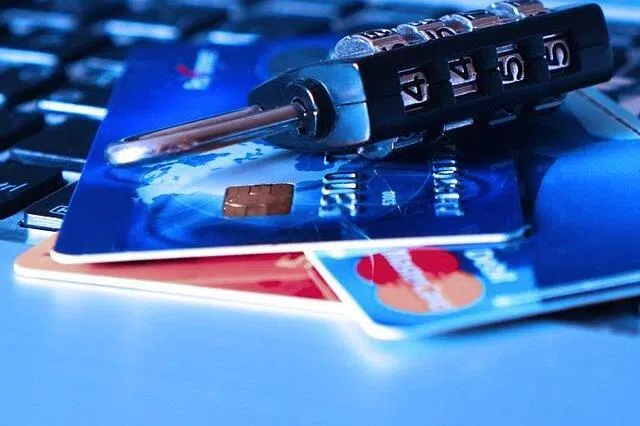Singaporeans fall further into credit card debt as rollover balances hit record high
Sign up now: Get ST's newsletters delivered to your inbox

Data from MAS showed that credit card rollover balances hit a high of $7.9 billion in the third quarter of 2024.
PHOTO: PIXABAY
Follow topic:
SINGAPORE – Singaporeans are spending more on their credit cards and getting further into debt as they defer bill repayments and are faced with high interest rates.
These sky-high rates on credit card debt are a “hidden, silent killer”, said Mr Alfred Chia, the chief executive of advisory firm SingCapital.
The Monetary Authority of Singapore noted that credit card rollover balances – the amount not paid by the due date – hit a record high of $7.9 billion in the third quarter of 2024.
They crossed the $7 billion mark in the fourth quarter of 2023, marking the first time this level had been hit since data was available in 2014, and have continued rising.
Total credit card billings are also up, increasing 1.3 per cent from the second quarter of 2024 to $24 billion in the third quarter.
While that is shy of the high of $24.3 billion in the fourth quarter of 2023, total billings have been hovering above $20 billion since the third quarter of 2022.
A DBS spokesperson said the rise in credit card rollover balances reflects a return to normal as people spend more on travel and dining following the Covid-19 pandemic.
The spokesperson added that credit card rollover balances now account for a smaller share of total card billings compared with before the pandemic.
A UOB spokesperson said there is “no significant change in delinquency rates across the different demographic groups”.
Dining comprised a relatively higher proportion – about 10 per cent – of total card spend, followed by essentials like insurance, medical and groceries, the spokesperson added.
An OCBC spokesman said the bank’s “credit card delinquency rate remains stable, as unemployment rate remains low and household balance sheets remain resilient”.
A Credit Bureau Singapore report offered further insights into the behaviour of different age groups.
It showed that consumers in the 45 to 49 age group had the largest amount of unsecured credit card debt in the third quarter of 2024.
This cohort had average outstanding balances – the amount owed but not paid – of $6,670.
People aged 40 to 44 had average outstanding balances of $6,542, while those from 50 to 54 owed $6,304 on average.
However, those in the 40 to 54 groups appear to have taken steps to reduce their credit card debts, which dropped from the second quarter.
But people between 21 and 39 are chalking up more debt, with Credit Bureau data showing their outstanding balances rising since the first quarter of 2024.
Mr Steward Thum, associate director of financial services at PhillipCapital, said high interest charges on credit card rollovers can create a “debt cycle”, where a person keeps borrowing money that he cannot pay back.
This ends up becoming a “significant financial burden for individuals”, Mr Thum added.
Interest compounds on a daily basis if you pay only the minimum amount due each month, meaning interest is charged daily on the outstanding amount.
DBS and UOB impose a charge of 27.8 per cent a year, while OCBC levies 27.78 per cent.
The interest charges are 3 percentage points higher if you do not even pay the minimum amount due.
DBS and UOB levy 30.8 per cent a year and OCBC 30.78 per cent. The banks also impose late charges of $100 if the minimum amount is not paid.
SingCapital’s Mr Chia said: “People may not be sure there is this compounding interest effect.
“You start off with a few hundred dollars, you may not see the effect but it is compounding effect (compounding daily).”
Mr Thum said this practice of rolling over credit card balances and paying only the minimum sum is more common among his clients, who are established in their careers and earning a good income.
Many of them feel stressed at work and try to relieve this by dining at expensive restaurants, travelling, shopping for brand-name goods, engaging feng shui services or buying cars. And before they realise it, their spending has spiralled out of control.
Mr Ray Zheng, an adviser at financial consultant Providend, noted that clients get a lot of different credit cards to earn airline miles.
But they end up with too many cards and lose track of their spending and forget to pay their bills.
Mr Zheng also noted that e-commerce has made it a lot easier for people to spend money, as has the digitalisation of payment systems, which lets people sign up for credit cards with little effort.
Mr Thum said that there is also a group who use their cards to make down payments for property purchases, while some trade in shares on credit in the belief that they will be able to earn investment returns that exceed the interest they owe.
But if their investments fail to deliver returns, the debts begin to mount.
Mr Chia cited a client who owed more than $600,000 in credit card debt from his share trading.
“It took him about eight years to actually accumulate to that amount of debt.”
He helped another client who racked up more than $300,000 in credit card debt because they were using cards to pay for their children to study overseas.
Mr Thum said that some people may have been hit as inflation pushed up the cost of essentials such as food, utilities and housing while their incomes remained stagnant.
Their struggle to make ends meet may have led them to rely on their credit cards to feed their families and pay the bills, he added.
The MAS has rules to safeguard against consumers getting mired in credit card debt. It has capped the borrowing limit at 12 times of monthly income for those earning less than $120,000 a year.
If a borrower’s total outstanding balances exceed this borrowing limit for three months, banks cannot grant him or her additional unsecured credit facilities.
The card holder’s credit facilities are also suspended if the payment is 60 days past the due date.
Mr Chia also hopes that the Government implements a cap on late interest rates charged by credit card companies, or better still, lower these rates.
“Credit card companies will justify that they are taking high risk with unsecured credit,” he said.
“Will they increase the rates? Nobody knows because they may use the pretext of unsecured credit. They also have to factor in bad debts.”
Mr Thum said that people who have difficulty meeting their credit card bills every month should at least try to pay more than the minimum amount due.
This is because interest rates shoot up if they do not pay even the minimum amount, and they are subject to late fees as well.
The UOB spokesperson said card holders facing repayment difficulties can explore a balance transfer with their banks.
A balance transfer essentially moves unpaid credit card bills into another account which charges zero per cent interest for three-, six- or 12-month tenors, but a borrower has to pay a one-time processing fee, ranging from 1.49 per cent to 4.28 per cent of the amount of each transfer.
Providend’s Mr Zheng said he gets questions from clients about what to do if they have credit card debt and other financial priorities like saving for the future.
“It is like taking a step forward, then two steps back because of the credit card debt. The interest is really high,” he said, so they should clear that debt first.
It all boils down to basic budgeting and spending within one’s means.
Providend’s Mr Zheng said consumers could assign credit cards to different spending categories – essential and discretionary expenses. One card could be allocated for utility bills, one for dining, one for transport and one or two for travel-related expenses.
“At the end of the month, just by looking at the credit card statements, you actually have a good sense of how much you are spending on each category,” he said, noting that it will show if you are overspending in any area.
Chor Khieng Yuit is senior correspondent at The Straits Times. She believes in financial education for the masses, particularly the low-income, the elderly and people with special needs.


